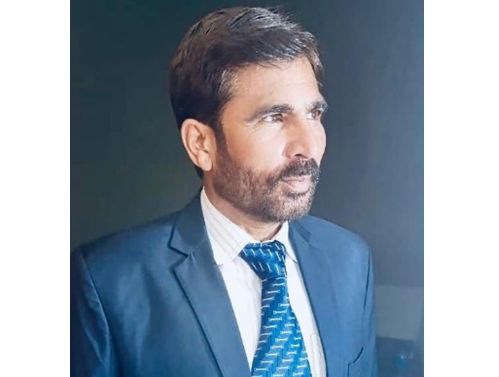Dr. Muhammad Akram Zaheer
For over a decade, Xi Jinping, has consolidated power to an extent unseen and has reshaped the CCP elite through a sweeping anti-corruption campaign, curtailed civil society, restructured and modernized the military and expanded state involvement in the economy. He has also pursued assertive foreign policies escalating military activity around Taiwan, expanding China’s presence in the South China Sea, deploying confrontational “wolf warrior” diplomacy and deepening ties with Russia even after its invasion of Ukraine. This has ushered in what is widely viewed as Xi’s personal era in Chinese politics.
Past precedent shows that power transfers in China have been fraught with political intrigue, factional struggles and even instability. The 2012 leadership change from Hu Jintao to Xi occurred amid rumors though unsubstantiated of coups and assassinations, underscoring the volatility of such moments.
Succession politics often begin long before a leader steps down, as incumbents seek to secure their legacy by installing loyal successors. Mao Zedong’s fixation on preserving his revolutionary vision in his final decade led to the Cultural Revolution, while Deng Xiaoping ensured his economic reforms continued even after relinquishing formal titles. Xi is likely to follow the strongman precedent of Mao and Deng, selecting a successor ideologically aligned with him. However, survival in elite politics requires more than shared ideology successors must also navigate the rivalry of those passed over, making political cohesion fragile.
A critical determinant of succession success is military backing. Although the People’s Liberation Army (PLA) has never directly seized political control, it plays a decisive “kingmaker” role in internal CCP struggles. The Mao–Hua Guofeng transition illustrates this: Mao’s chosen heir lacked strong political and military standing, surviving only temporarily with top generals’ support before being ousted by Deng. Xi himself benefited from strong military ties upon taking office, enabling him to purge rivals and reshape the PLA leadership. Maintaining such control will be essential for any future leader.
Historically, personalist rulers in China have cycled through multiple would-be successors Mao discarded Liu Shaoqi and Lin Biao before settling on Hua, while Deng replaced Hu Yaobang and Zhao Ziyang before elevating Jiang Zemin. Such instability risks factional splits, as seen in the 1989 Tiananmen protests, which were partly triggered by Hu Yaobang’s death. Leadership transitions can also influence foreign policy Xi’s awareness of limited time could increase his willingness to take risks, particularly over Taiwan, which he views as central to national rejuvenation. Yet the potential costs of failure military defeat, economic sanctions and diplomatic isolation could temper such ambitions.
The PLA’s influence during succession raises the danger of politicized military assessments. Leaders may receive intelligence skewed to match their preferences, leading to strategic miscalculations. Deng’s 1979 invasion of Vietnam undertaken partly amid his maneuvering to oust Hua was a political gambit with poor battlefield results, illustrating how domestic power struggles can distort foreign policy decisions.
Determining Xi’s successor will be complicated by demographic and political constraints. None of the current seven members of the Politburo Standing Committee fit the ideal profile of a relatively young leader capable of ruling for many years. Older candidates risk short tenures, while younger “dark horse” picks would require sidelining an entire generation of senior politicians, potentially causing long-term fractures. Historical cautionary tales such as the Soviet Union’s unstable transitions in the 1980s loom large in Xi’s thinking.
If Xi dies unexpectedly without naming a successor, the CCP constitution calls for the Central Committee to elect a new leader. In reality, a smaller circle of elites, possibly including military figures, would likely decide beforehand. Premier Li Qiang could be a natural choice, but military-backed rivals could displace him. The best-case scenario for stability is for Xi to designate and gradually empower a successor in his final years, as Deng did with Jiang Zemin. This would require giving the heir key posts in party administration and military leadership to build competence and authority.
Failing to groom a capable successor increases the risk of a weak leader falling to internal challenges, destabilizing both Chinese politics and international relations. For the United States, the looming succession represents both a potential turning point and a source of uncertainty. However, Washington should resist the temptation to interfere both because of the risk of backlash and because the CCP still interprets the 1989 protests through the lens of perceived foreign subversion. Instead, careful observation and preparedness for post-Xi adjustments are advised.
A future leader could similarly steer China toward moderation and greater openness, though this outcome is far from guaranteed. Xi’s eventual succession will be a defining moment, shaping China’s domestic governance, its military orientation and its global posture for years to come.

















